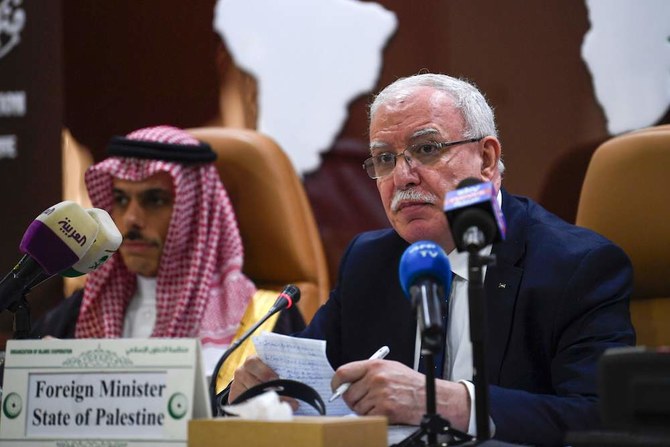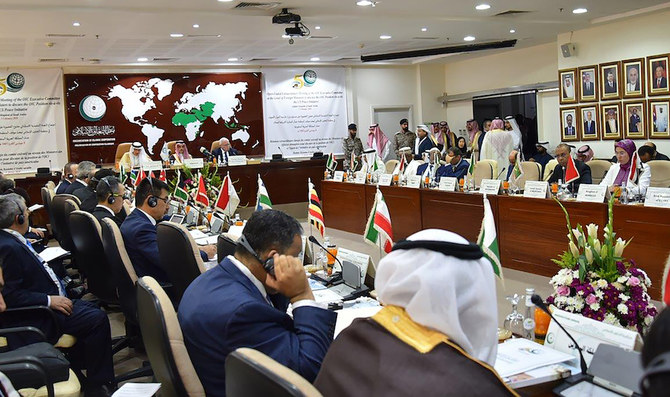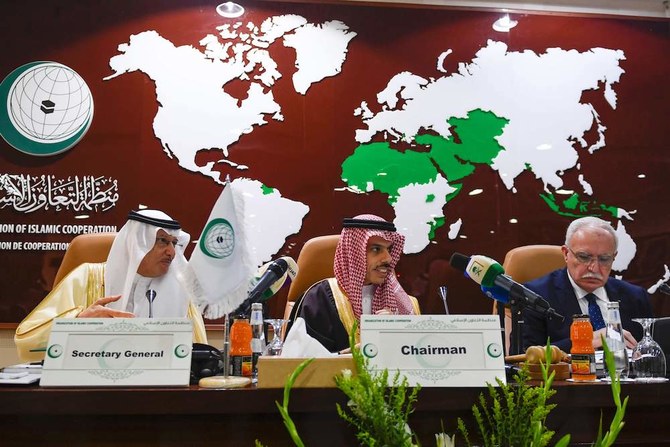





DUBAI — Days after Gulf Arab states expressed their support for President Donald Trump's efforts at resolving the Israeli-Palestinian conflict, representatives from these same countries and other Muslim nations gathered in Saudi Arabia and rejected the White House's plan as “biased.”
Saudi Arabia's Foreign Minister Prince Faisal bin Farhan said the kingdom backs efforts that push for negotiations, but said such initiatives must reach a fair resolution that ensures the rights of the Palestinian people “through the creation of an independent state with East Jerusalem as its capital.”
He spoke at a gathering in the Saudi city of Jeddah for the 57-nation Organization of Islamic Cooperation, which denounced Trump's plan.
The formal rebuke by the OIC comes just days after Arab League nations unanimously rejected the White House's proposals at a meeting in Cairo, where Palestinian President Mahmoud Abbas threatened to cut security ties with Israel and referred to White House adviser Jared Kushner, the chief architect of the plan, as simply Trump's son-in-law.
The White House plan heavily favors Israel and ignores many of the Palestinians’ core demands by keeping some 750,000 Jewish settlers in place, recognizing Israel’s sovereignty of the strategic Jordan Valley, and asserting Jerusalem as the “undivided capital” of Israel.
The OIC slammed “the biased approach" of the White House, saying the plan adopts the Israeli narrative and endorses the annexation of vast areas of occupied Palestinian land under the pretext of security for Israel. The group said the U.S. proposal “lacks the minimum requirements of justice and destroys the foundations of peace.”
The OIC's statement stressed that east Jerusalem as “the eternal capital” of a future Palestinian state and said it remains the cornerstone issue of Muslims around the world. The OIC was formed 50 years ago in response to an extremist arson attack on the Al-Aqsa Mosque in east Jerusalem, one of Islam’s most sacred sites.
The land on which Al-Aqsa Mosque stands is also sacred to Jews, who pray nearby at the Western Wall, a remnant of the compound where biblical Jewish temples once stood. Evangelical Christians support the rebuilding of a Jewish temple on that land.
While the public rebukes by the 22-nation Arab League and the Organization of Islamic Cooperation reflect public sentiment among Arabs and Muslims, neither group called for concrete actions to be taken by its member states.
The OIC only urged support for Palestinian diplomatic efforts and for member states to work with the U.N. Security Council to reject proposals that contradict international law.
AP